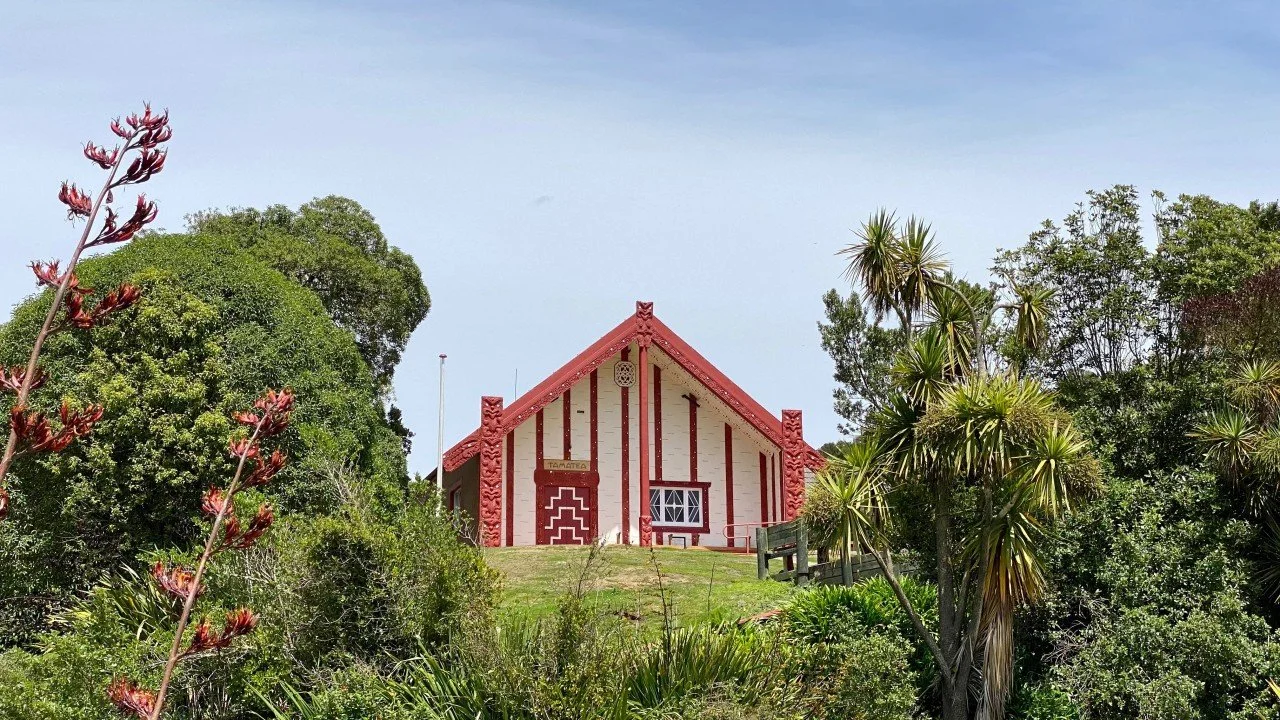Navigating Two Worlds: Indigenous Leadership in Business and Governance
Ōtakau Marae, Otago Peninsula - Photo credit: Frankie Karetai-Wood-Bodley
Lessons From the Boardroom
Recently, in one of our Massey University - Te Kunenga ki Pūrehuroa Executive MBA classes, we hosted a guest lecturer, a Māori | Indigenous New Zealand leader who has spent a lifetime successfully navigating corporate spaces, rising to become a CEO.
What struck me most was not his success in mainstream systems, but his humility when speaking about the challenges of returning to iwi governance and business.
He shared a story about being asked to find a tenant for an iwi-owned commercial property. From a purely commercial perspective, a vape store and a liquor store looked like attractive options, both with high-yield, consistent returns. He put this forward as part of his proposal.
But around the table, his iwi reminded him of something bigger: the impact those businesses would have on their own people, many of whom are disproportionately harmed by vaping and alcohol. They said no and sent him back to the table.
In the end, he found a different tenant that delivered a better financial return and aligned with the iwi’s values.
“From a commercial perspective, the path to maximum value can be obvious. But Māori governance asks: at what cost?”
Two Worlds, Two Value Systems
This story illustrates the constant negotiation required of Indigenous leaders who move between mainstream corporate systems and Māori governance.
In the corporate world, the primary driver is profit.
In iwi spaces, profit is balanced with whakapapa, collective wellbeing, and intergenerational responsibility.
For this leader, the initial path was shaped by the “corporate head,” smoking, drinking, and maximising revenue. But the Iwi called him back to the heart. It wasn’t an easy moment. It was confronting. And, I believe, incredibly humbling.
That humility is part of what makes Māori governance so distinct. It centres values, whakapapa, and collective wellbeing as non-negotiables, even if the spreadsheets say otherwise.
Intersectionality in Governance
This kōrero reminded me that intersectionality isn’t only about individual identity. Kimberlé Crenshaw defined it as the overlapping of race, gender, class, and other categories, but it can also describe what happens when different value systems intersect.
For Māori leaders, intersectionality is lived in every boardroom, as they navigate Pākehā, or non-indigenous, corporate models of profit and growth alongside iwi obligations to whakapapa, whenua, and hauora.
“Māori leaders don’t just navigate two worlds, they weave them together, constantly asking not only what creates value, but what creates mana.”
And this is deeply relatable for me. As someone who has spent much of my life moving between Māori and Pākehā systems, government and community, corporate spaces, and kaupapa Māori spaces, I am aware of the trauma that comes with navigating those different worlds. It is exhausting. It is sometimes alienating. But it also carries the potential to create powerful insights, if we are willing to be humbled and to listen, as our guest speaker modelled so honestly.
Hope for the Future
Hearing this kōrero left me with two reflections.
First, there was an insight from a fellow EMBA colleague, Simon Bickers, who was surprised he got as far as proposing vape and liquor stores. Simon had assumed his “internal guardrails” would have kicked in earlier. But perhaps that is the point: humility comes not from never making missteps, but from being willing to be corrected, to listen, and to adapt.
Second, I’ve been surprised, in the best way, by how values-driven my EMBA cohort is. Going in, I worried that the class would lean conservative, centrist, or even super-capitalist, given the global political climate and its impact on minorities. Instead, I’ve found people deeply engaged in equity, sustainability, and values-based leadership.
That gives me hope. If the future of business leadership is one where corporate thinking and cultural integrity intersect, then perhaps we are building a world where Indigenous and intersectional voices no longer have to choose between which world they belong to.
“Navigating two worlds is hard. But it is also where some of the most transformative leadership is born.”
🔗 Follow me for more reflections on systems change, equity leadership, and human rights diplomacy.
🖤 Ko te pae tawhiti whāia kia tata. Ko te pae tata whakamaua kia tīna. | Seek out the distant horizons so they may become close. Hold fast to the close horizons so they may be secured.


